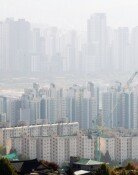Realty investment scammers’ fraud and speculation must be stopped
Realty investment scammers’ fraud and speculation must be stopped
Posted March. 11, 2024 07:49,
Updated March. 11, 2024 07:49
Real estate investment scams are rising as the government is rolling out various development policies across the country to garner votes ahead of the general elections. The scam involves buying land that is difficult to develop at a low price, exaggerating its development potential, and then selling it at a high price by splitting it into smaller pieces. There is also an emerging speculative mood wherein crooked realtors try to increase prices by capitalizing on government announcements on development plans. There are growing concerns that the government's pork-barreling policies could distort the market and cause further damage.
The Dong-A Ilbo analyzed the 10 towns, counties, and cities with the highest volume of land transactions in the Greater Seoul region through the first nine days of this month. The analysis revealed that they were concentrated in Hwaseong, Pyeongtaek, Yongin, and Yangpyeong, Gyeonggi Province, where the government's regional development policies, such as railways, roads, and industrial complexes are concentrated. Land transactions in these areas were mainly conducted on 28 parcels, each divided into 15 pieces on average before being sold. In the case of a forest field in Hwaseong City, Gyeonggi Province, 59 additional people bought stakes in the field this year, bringing the number of the land’s owners to 93 people, which translates into 21 square meters per person.
The government has recently unpacked its development policy packages through presidential public forums. On January 10 in Goyang, Gyeonggi Province, the government announced that it would allow apartment buildings to be rebuilt without a safety inspection after 30 years of construction. On January 25 in Uijeongbu, Gyeonggi, it proposed a plan costing 134 trillion won (about 101 billion U.S. dollars) to extend and build new metropolitan high-speed rail lines (GTX) and underground existing railroads. On February 21 in Ulsan Metropolitan City, the government promised to lift development restrictions on the Green Belt (development restriction zone) in non-Greater Seoul regions and ease regulations on absolute agricultural land. Five days later in Seosan, South Chungcheong Province, it said it would lift a military facility protection zone 117 times the size of Seoul's Yeouido nationwide.
The government's announcement resembles the rhetoric of real estate investment scammers. The government has said, "We're going to loosen redevelopment and reconstruction regulations," "You have demanded lifting Green Belt restrictions, and don't worry about it," "Just a song or two (from Incheon) and you're in Seoul," and so on, stimulating speculative demand. Real estate scams and speculators use official government announcements as evidence, making it difficult to prove fraud and hold them accountable later.
Contrary to the government's promises, it is virtually impossible to implement all those development policies at once after the general elections. Many of them will end up fizzling out once the elections are over because they don't have the funding or legal backing. Before pushing to implement, the government must carefully weigh the practicalities, necessity, and possible side effects, such as real estate speculation. The government should be cracking down on real estate fraud and speculation. It should never implement policies as if it is a ‘floating realty investment scammer’ by effectively encouraging speculation with promises of good news that are uncertain or unviable at best.
Headline News
- Kim Jong Un: Negotiations with U.S. have gone to the limit
- Yoon’s support rating remains at 20% for two weeks in a row
- SEC chair known for cryptocurrency regulations announces resignation
- Medical student scores 398 on CSAT, signaling ‘applications for reach schools’
- Noh Kyung-eun to play up to three more years with SSG







